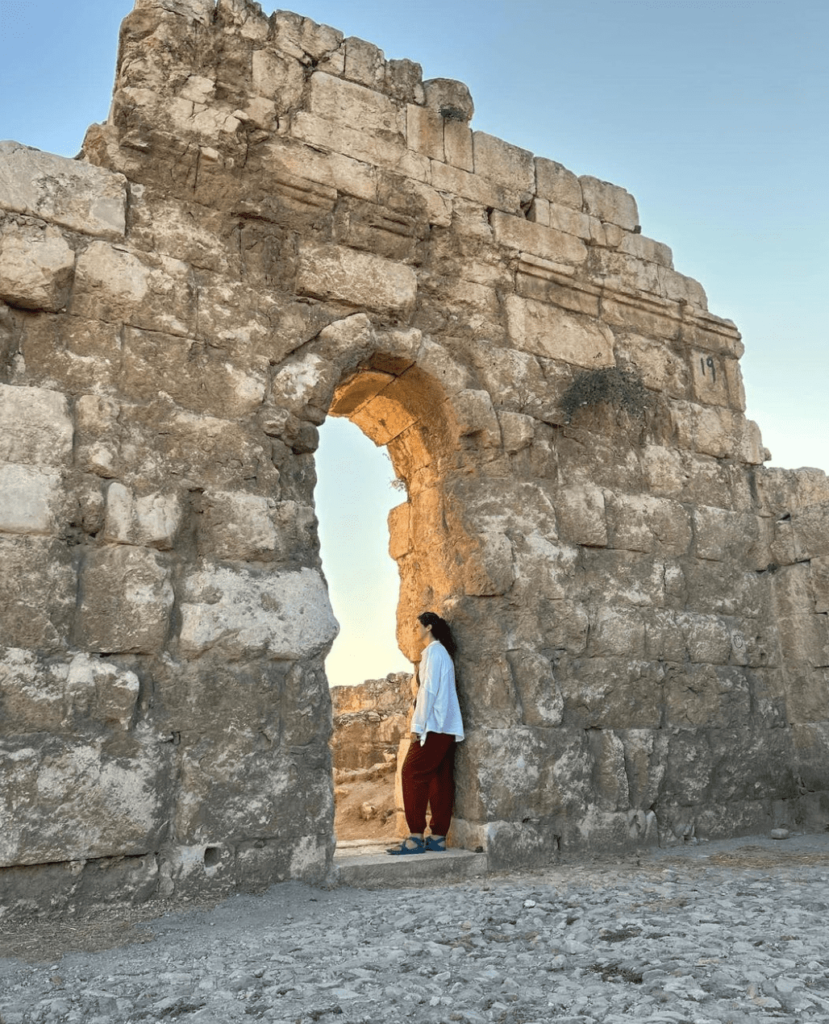
One of the most valuable lessons I will take away from this summer is the mechanics and process of learning a language (particularly a language as difficult as Arabic). As I look forward to life after my language program, I am beginning to think about how to continue my Arabic education through a combination of tutors and self-study. This is something I’ve tried to do in the past, and have often felt lost and a bit aimless.
First, what I learned this summer that I am eager to build on down the line:
- A much clearer understanding of grammar
- No, grammar is not my favorite (in English or in any other language), but I have developed a much more structured understanding of Arabic grammar and how to operationalize it. This foundational knowledge allows me to see a path towards deeper understand of more complex engagement with Arabic and the patterns that will increase the speed at which I am able to learn Arabic.
- A note on grammar: after years of hard work, I pride myself as a pretty good writer and editor. Having said that, I know so very little about English language grammar, and this fact definitely showed through during the summer (what, for example, are process verbs versus action verbs???). Is I had to learn the fundamentals of English grammar to understand Arabic grammar, I often wondered how I can be a good writer with such a weak understanding of English grammar. The answer, I believe, actually calls back to an idiom in Arab culture. When you are cooking traditional dishes, you have to FEEL the measurements and the flavors. This is how I think about writing in English. I might not know the name of the structures, but I can feel what allows for clear and readable content.
- I also developed a pretty clear understanding of where my gaps in knowledge are in grammar, and these will be top priorities as I look forward
- Conjugations of the 10 forms
- How different forms of speech relate to the ten forms
- Negation
- No, grammar is not my favorite (in English or in any other language), but I have developed a much more structured understanding of Arabic grammar and how to operationalize it. This foundational knowledge allows me to see a path towards deeper understand of more complex engagement with Arabic and the patterns that will increase the speed at which I am able to learn Arabic.
- A better understanding of the commitment required to learn large amounts of vocab.
- This summer, I learned 1,000 words from my Arabic textbooks alone (yes – textbooks, I will be traveling home with four different Arabic textbooks, in addition to my ginormous dictionary). But really *knowing* this vocabulary required endless AnkiApp reviews, slowly working my way to 90% + success, and then an eventual insistence of getting all of the worlds correct. Really knowing the words and being able to recall them a week, two weeks, four weeks later required significantly more review than I had ever understood before.
- With this knowledge, building regular vocab review into my daily life will be an essential to continuing to develop Arabic.
- Learning languages takes time. You can rush getting in the hours, but you can’t shorten the hours that it takes to learn the language. This summer, I did over 450 hours of Arabic. According to the State Department, it takes 2,200 hours to learn Arabic to a working proficiency. I made a big dent in this (and already had about 400-500 hours going into the summer), but it also requires patience and steady commitment, even beyond the intensity of a summer program.
- With this, I plan to work in a bit of language study every day to make steady progress. If I did ten hours a week this year (perhaps optimistic, but useful for framing), I could reach over 1,500 hours of Arabic on my path to 2,200, and see steady progress with steady commitment.
- Textbooks and structured learning are actually really helpful
- My Arabic studies over the past several years have been unstructured and ad hoc. While there are significant benefits to this, I also really appreciated the structure of a textbook in guiding Arabic language learning. While I’m not necessarily the biggest fan of al-Kitaab, the infamous and nearly universally used Arabic textbook, I did see the benefit of having a structured and standardized system of learning a language. With this knowledge, I plan to continue working through Qasid’s textbook and then transition to a media textbook to see tangible progress through a system.
- Ask for help
- Arabic is super tough and I imagine it would be almost impossible to learn the language without a native speaker guiding you through the process. This summer I leaned heavily on so many in my native Arabic language community, and I’m so grateful for their support.


